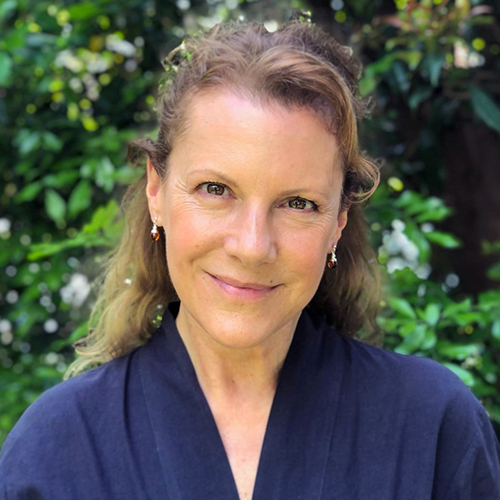
Essential Communication Skills for Lactation Professionals
Communication skills are of critical importance in health care, and they are called "skills" for a reason. Communication techniques can be learned and practiced to help improve your ability to communicate effectively with both clients and colleagues. This package has been put together with the new IBLCE requirements for communication skills in mind, and provides focused education on communication skills for lactation and other healthcare professionals.
This lecture pack counts towards the 5 hours of education IBCLCs require in communication skills before applying for the IBLCE exam.


Cynthia Good, MS Clinical Psychology, is an International Board Certified Lactation Consultant, Clinical Counselor, author, consultant, and internationally recognized speaker. She is the Director of LifeCircle Consulting, LLC and is Certified in Acute Traumatic Stress Management. She is based in the Seattle, Washington, USA area, where she formerly served as an Adjunct Professor in the Department of Midwifery at Bastyr University where she taught counseling skills and is a therapist at Sandbox Therapy Group where she works with children, adults, and families. Cynthia has a strong interest in the emerging field of lactational psychology. She brings the evidence and insights of psychology and lactation consulting to her presentations, providing information and teaching skills that are essential to understanding and effectively responding to the complex psychosocial realities of families living in diverse contexts. The focus of her presentations includes communication skills and counseling techniques for perinatal care providers; equity, diversity, and inclusion; infant feeding rhetoric; perinatal mental health; perinatal loss, grief, and trauma; ethics; serving as an expert witness in lactation-related court cases; cultural competence and humility; vitamin D; and more.
Topic: Cultural Competence or Cultural Humility? A Roadmap for Lactation Specialists - [View Abstract]
Topic: Heartbroken: Loss and Grief in the Perinatal Time Period - [View Abstract]
Topic: It Wasn’t Supposed to be Like This: Traumatic Birth, Traumatic Stress, and Breastfeeding - [View Abstract]
Topic: My Brain is Doing What? Bias, Ethics, and the Lactation Specialist - [View Abstract]
Topic: Perinatal Mental Health Screening: A Primer for Lactation Specialists - [View Abstract]
Topic: The IBCLC as Expert Witness: Role, Strategies, and Resources - [View Abstract]
Topic: The Rug Pulled Out from Underneath Me: Depression During Pregnancy and After Birth - [View Abstract]
Topic: Unpacking the Invisible Diaper Bag of White Privilege: An Overview of Racial Inequities in Breastfeeding Support - [View Abstract]
Topic: We’re Human, Too: Hidden Dynamics in Our Communication with Clients - [View Abstract]
Objective 1: List 3 kinds of life challenges lactation supporters commonly face that can impact both them and their ability to communicate effectively with clients;
Objective 2: Describe 3 impacts that a care provider’s own life challenges can have on their ability to communicate effectively with clients;
Objective 3: Describe 3 strategies that care providers can use to lessen the impact of their own life challenges on their ability to communicate effectively with clients.
On the best of days, providing quality lactation care to families in the perinatal time period is a challenging endeavor. IBCLCs, for example, are mandated to effectively utilize history taking and assessment skills, a broad collection of skills to assist the dyad, general problem-solving skills, skills related to techniques and devices, and skills needed to develop, implement and evaluate an individualized feeding plan in consultation with the client. Communication skills are the bedrock of everything a lactation supporter must do. Our training in this area logically tends to focus on understanding and responding to the human context of the dyad. However, there are two sides to communication in a lactation-related encounter: the client and the care provider. And, care providers are also human. In spite of our compassion and good intentions, we are impacted by the stresses, losses, and traumas of life, which can then impact our ability to work well with our clients. This presentation addresses common challenges in the lactation supporter’s own context (such as cognitive load, burnout, and traumatic triggers), their impact on communication, and strategies that can help us improve our ability to communicate effectively with our clients.


With over 25 years’ experience as a relationship counsellor, parents’ group facilitator, mental health educator, partner and mum, Elly Taylor has become an internationally known parenthood preparation and perinatal relationship expert and the award-winning author of Becoming Us. Elly’s passion is preparing parents for a happy and healthy family—at any stage in their parenthood journey, and especially in a challenging world. Her Becoming Us approach includes fathers and partners in all aspects of pregnancy, birth and beyond, harnesses the attachment bond between couples to stabilise them through the life changes and challenges of parenthood and links both parents into community services to support the mental, emotional and relational wellbeing of the whole family.
Elly has served as an advisor for numerous university research projects and her ground-breaking Becoming Us developmental framework has now become a comprehensive multi-disciplinary education and professional training and courses for parents. In a full circle moment, Elly recently trained midwives, allied health and therapy professionals in her local community and now Becoming Us Nest Building Sessions are preparing expectant parents in the hospitals where her children were born. Elly lives in Sydney, Australia with her firefighter husband, their three kidults and an abundance of pets.
Topic: Communication and Conflict - How Connection Supports Both - [View Abstract]
Topic: Including Fathers and Partners to Support Perinatal Mental Health and Marriages - [View Abstract]
Objective 1: Participants will be able to name three benefits of connected communication.
Objective 2:Participants can distinguish a reaction from a response.
Objective 3: Participants will be able to list three elements of connected communication.
Communication is the lifeblood of relationships but much more challenging than most people realise, especially during the perinatal period. The closer the relationship, the more challenging effective communication can be. Things just seem to get in the way. Feelings are hard to talk about. Effective, meaningful communication is much more than just the exchange of information. What’s your intention? What is the impact of the words you choose? What do the other person’s words, intention and impact mean for you and your relationship with them?
Communication is both an art and a science. It starts with connection. Connection facilitates communication: connection with yourself gives you the awareness, skills and confidence to say what you want to say, how you want to say it. Connection also helps you to deal with what your words evoke inside the person you’re talking with.
In this presentation you’ll discover why connected communication is so important, the barriers to achieving it, and the benefits, for yourself and others, of communication as a pathway to strengthening and deepening relationships, creating stability through change, and finding meaning and direction in the sometimes overwhelming and confusing landscape of new parenthood.


Tanya Singleton is a registered nurse with over 35 years of experience in Maternal-Child nursing. More than half of that career was as a Labor and Delivery nurse, certified in High-Risk Perinatal nursing. Tanya is also an IBCLC lactation consultant and Lamaze childbirth educator. She retired as United States Army Nurse Corp officer in 2003 and began working in private practice as a lactation consultant and childbirth educator. She has run several community non-profits in the Fredericksburg, Virginia area that dealt with issues related to women’s and children’s health promotion and illness prevention. Tanya is committed to quality education and lifelong learning, and has taught maternal-child and pediatric nursing to students in the Rappahannock Region of Virginia, sharing her various clinical anecdotes in classroom and in labs. She is an advocate for Perinatal Grief Support and early detection of post-partum depression. She is owner and proprietor of The Baby Whisperer, providing in-home support in childbirth education, breastfeeding and parenting. She is the mother of a blended family of five adult children and Nana to three.
Topic: How to be Part of the Solution: The Effects of Intergenerational Trauma on Perinatal Persons of Color - [View Abstract]
Objective 1: Model appropriate listening: non-verbal approaches and timely verbal cueing.
Objective 2: Provide culturally sensitive and compassionate communication.
Objective 3: Provide appropriately accessible written communication.
Objective 4: Demonstrate behaviors that communicate caring.
Effective communication in support of breastfeeding families requires a multi-faceted approach and must circle back to evaluate its impact on the mother, her infant, and her definition of family. All healthcare providers in this loop must recognize the importance of delivering compassionate, culturally appropriate communication which includes active listening, timely and sensitive non-verbal and verbal cueing. Written communication should be in a format that is appropriately accessible to the mother and significant others.


I am the mother of three breastfed children. Certified as an IBCLC in 2007, the next year, in 2008, setup the first IBCLC clinic in the medical center in Taiwan. As the President of the Chinese Lactation Consultant Association from 2015 till now. I have been teaching in the university for 30 years and as a part-time associate professor in the Department of Midwife & Women Health, National Taipei University of Nursing and Health Science, Taiwan now. After I retired from the university, I fund and as the CEO of WELL International Co., aims to promote the three-stages certification of profession lactation support competence.
Topic: Communications/Connection and Conflict Resolution Within the Extended Family - [View Abstract]
Objective 1) Recognize the influence of family bonding and traditional Asia culture on breastfeeding;
Objective 2) Describe the common conflicts of parenting between the extended family and the nuclear family;
Objective 3) List the sources of breastfeeding support for the extended family;
One of the biggest differences between Eastern culture and Western culture the tight connection of family. In Eastern culture, there is a traditional culture for postpartum practice called “doing the month (DTM) ”. Including dietary taboos, lifestyle restriction, such as No hair washing, no bathing, and also parental self-regulation. This kind of confinement is very difficult for the young generation, and it causes a lot of conflicts within family. Based on affection exchange theory(AFE), by using active listening skills to accept the expressions of both parties. To praise ANY behavior whichever is nicer to the other. To facilitate the mutual experiences on positive feelings in the same living target, connecting and caring all people’s needs on-site. Acting is considered as a connector, to emphasize and to enlarge the two parties' commonality. Hence, the consensus building and the making the feasible strategies for a change are necessary.


Lesley Everest has been practising as a birth, postpartum, and end-of-life doula in Montreal over the last 26 years. She is the founder of MotherWit Doula Care and MotherWit Doula Training. Lesley's professional background in many forms of somatic/emotional support therapies and inter-spiritual ministry informs her work as a teacher of human resilience , as do the births and parenting of her own four kids, and her experience of healing from cancer. She has learned over the years that a good birth and early parenting experience is less about goals being met and more about feeling safe and respected. Lesley believes that the journey into family-hood matters for all members, serving as a transformational event that has the power to shape early parenting and the next generations. Lesley's diplomatic and collaborative nature has made her a sought after speaker in the North American birth and parenting conference circuits, as well as a facilitator of workshops geared towards soft skills building for medical care providers. Lesley is resourced by long walks in nature, late night dancing with friends to ‘80’s music, and visits to the spa.
Objective 1) Explain the CALM approach to communication;
Objective 2) Describe attunement;
Objective 3) Explain the meaning of "languaging" within the CALM approach;
The CALM Communication workshop is designed to nourish practitioner skills that can support the nervous system co-regulation of the breast/chestfeeding parent/baby dyad, thereby enhancing the efficacy of information exchange at a vulnerable time.
When a parent is experiencing breast or chestfeeding difficulties, it can be emotionally distressing. This distress can be exacerbated by a history of trauma, a challenging birth/NICU experience, or a perinatal mood or anxiety disorder. Babies and their parent/s are learning contingent communication with each other, often in spite of uncomfortable challenges.
In the time lactation professionals spend with a new family, they have the opportunity to provide a stabilizing presence that may create reparative experiences for some of the stress-based breaches in the vital attachment mechanisms babies need to develop with their parent/s for optimal, life long health.
The art of information sharing is not only about the skilled assessments professionals make and the work done with infant feeding challenges, but also about how to create safe space for a client’s/patient’s truth to unfold in a supportive way.
Accreditation
CERPs - Continuing Education Recognition Points
GOLD Conferences has been designated as a Long Term Provider of CERPs by the IBLCE--Approval #CLT114-07. This lecture pack is approved for 5 R-CERPs.
This lecture pack counts towards the 5 hours of education IBCLCs require in communication skills before applying for the IBLCE exam.
Midwifery CEUs (MEAC Schools): Applicable to NARM Certified Professional Midwives and those require MEAC Certified Education. This program is approved for 0.5 MEAC CEUs by the Midwifery Education Accreditation Council. Please note 0.1 MEAC CEUs is equivalent to 1 NARM CEU.
Nursing Contact Hours:
This nursing continuing professional development activity was approved by American Nurses Association Massachusetts, an accredited approver by the American Nurses Credentialing Center's Commission on Accreditation. CEUs will be valid through to June 27, 2024.
This lecture pack is approved for 5 Nursing Contact Hours.
- View this presentation in its entirety, under your individual GOLD login info
- For GOLD Learning Lecture Library participants, successfully complete a post-test (3 out of 3 questions correctly answered)
- Fill out the Evaluation Survey
If you have already participated in this program, you are not eligible to receive additional credits for viewing it again. Please send us an email to [email protected] if you have any questions.
Tags / Categories
How much time do I have to view the presentations?
- The viewing time will be specified for each product. When you purchase multiple items in your cart, the viewing time becomes CUMULATIVE. Ex. Lecture 1= 2 weeks and Lecture Pack 2 = 4 Weeks, you will have a total of 6 weeks viewing time for ALL the presentations made in that purchase.
- Time for viewing the talks begins once you purchase the product. For Live Webinars & Symposiums, the viewing period begins from when the live event takes place. Presentations can be accessed 24/7 and can be viewed as many times as you like during the viewing period.
What are bundled lectures?
- Presentations may be available individually or via a bundled package. Bundled lectures are a set of lectures that have been put together based on a specific category or topic. Some lectures will be available in both individual and lecture form, whereas others will be available only via a bundled lecture pack.
Will there be Handouts?
- YES! Each lecture comes with a PDF handout provided by the Speaker.
Some lectures include a Q&A, what does that mean?
- During our online conferences, presentations that occur live are also followed by a short 15 minute Question & Answer Session. The Speaker addresses questions that were posted by Delegates during the presentation. We include the recording of these Q&A Sessions as a bonus for you.
How can I receive a Certificate?
- If this presentation offers a certificate, once you are done viewing the lecture or the lectures within a bundle, submit your attendance record in order to be able to download your certificate. You'll be able to see which credits are offered for the lecture by hovering over the "Credits Available" link within the "Speakers & Topics" tab.
Professionals that selected this package also viewed

|
|

|










